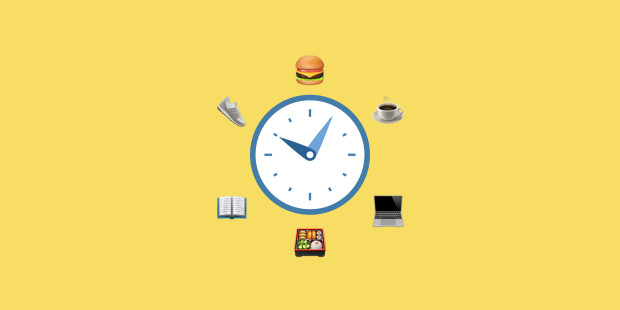10 Ways Self-Discipline Helps with Time Management

Time management is essential if one wants to succeed in life. Without it, nothing can ever be accomplished and finding success can be very difficult. One skill that helps with time management is self-discipline. Here are five ways self-disciple can help you manage your time much better:
- Reasons Why Time Management is Important in the Workplace
- Time Management Tips While Working Remotely
1. Better focus
Focus and self-discipline always go hand-in-hand. A person that doesn’t have discipline won’t be able to focus, and without focus time management can never be achieved. Self-discipline should be practiced at all times especially when it comes to forging a successful career (e.g. getting promoted, developing leadership or management skills, etc.). The more you stay focused, the more you improve productivity and obtain better career opportunities in the future. Focus is actually a skill that is learned over time but can also act as a switch if you want to achieve something.

As the word “self-discipline” suggests, it all starts with one’s self. Although people can easily tell you to stay disciplined, you still won’t be able to do it if you don’t try it yourself. To help you stay disciplined, avoid distractions and always focus on the task hand whether you’re finishing work-related tasks or simply doing household chores. The more you practice discipline in your everyday life, the better you stay focused and eventually help you manage your time much better. Focus is key and without it, you’ll constantly be faced with questions rather than answers.
2. Better Communication

Self-discipline doesn’t just help you but also the relationships you have with others. With this, you’ll be able to better communicate with people around you not just with colleagues but also with family and friends. One example is when you attend meetings; you’ll be able to listen properly to colleagues resulting in better two-way communication and employee engagement. This is helpful if you’re working with a task after having a conversation with a coworker.
Self-discipline also prevents you from taking too much time on talking to a person especially if you are pressed with time. To help you with your time management strategies, proceed with the conversation if you're not too busy or when you aren’t facing any form of deadlines at work, school, or at home. Remember, always give priority to conversations that are important compared to conversations that can just be postponed during some other time.
3. Efficient Results
Self-discipline is highlighted when you're building a professional career. With self-discipline, you're not just able to manage time better but also become a better professional in whatever field you're working in. Specifically, it helps you get more efficient results and prevents you from submitting work that is of substandard quality. Supervisors or managers don't mind giving promotions to workers who are highly productive resulting from having self-discipline, so make sure to apply this in your job every single day.

As previously mentioned, getting rid of distractions will help you boost productivity on the job. Smartphones and electronic devices are the most common form of distraction these days to the point where companies require employees to store all of their devices in a locker throughout the entire work shift. Getting distracted by colleagues can also ruin your momentum and prevent you from finishing on time. At this rate, make sure to inform coworkers ahead of time of your busy schedule and don't give in if they constantly distract you. Remember that they are not the ones finishing your work and you'll be held liable regardless if you submit an incomplete task.
4. Better Goal-Setting

Why is time management important? It tremendously helps when it comes to goal-setting. Naturally, you want to set a time frame on the goals you want to achieve and you want to achieve all of them at the fastest time possible. You don't want to cause delays as this may create a situation where goals will be overlapping and you'll be working overtime just to finish them. You want to be fast and efficient as much as possible when setting goals, and the only way to help you with this is through self-discipline.
To practice self-discipline in this case, don't work on too many goals at the same time and focus on the ones you deem more important. Whether it be career goals, financial goals, or family goals, give priority to the most important ones first and work on the others if you have time and resources to do so. Working on so many things at once will be counterproductive and actually result in zero goals being accomplished. By focusing on what’s important, your time management techniques will improve considerably.
5. More Leisure Time
Self-discipline can actually help you have more leisure time which helps you improve your work and life balance long-term. When it comes to working, you'll have more time for yourself and your family or friends the faster you finish your tasks. But it isn't just about the speed of your work but also the quality of it. By practicing self-discipline, you'll essentially have more leisure time which you can use to enjoy activities that bring you joy and relaxation.

Your family and friends can also benefit during your leisure time especially if you spend time with them. Your hectic schedule may prevent you from doing the things you love but it shouldn't be the case if you finally have some free time on your hands. With the time you'll be spending with important people, you'll create memorable moments and moments that you can cherish for the rest of your life. Going to the beach? Taking a hike in the mountains? Going shopping? Put all of them on your list.
6. Consistent Routine

A disciplined routine creates habits that streamline your daily activities. By following a predictable pattern, you reduce decision fatigue and save time. For example, setting a regular time for work, exercise, or planning ensures these tasks are completed without the need for constant reminders or motivation.
7. Maintaining Accountability

When you have self-discipline, you take ownership of your time and responsibilities. This means meeting deadlines, completing tasks, and acknowledging areas for improvement. Holding yourself accountable reduces wasted time and fosters a sense of responsibility, enhancing productivity.
8. Efficient Use of Downtime

Self-discipline ensures you use even short breaks or idle moments productively. Whether it’s reading, brainstorming ideas, or completing quick tasks, making the most of downtime can significantly improve time management without feeling overwhelming.
9. Building Momentum Through Consistency

Consistently working on tasks builds momentum, making it easier to maintain focus and progress. Self-discipline ensures you apply regular effort, eliminating the time wasted on restarting or regaining focus after long pauses. This consistency leads to quicker task completion and efficient use of time.
10. Resisting Distractions

Distractions like social media, unnecessary phone notifications, or non-essential tasks can derail your productivity. Self-discipline helps you recognize and resist these distractions, keeping your attention focused on the task at hand. This improved focus allows you to complete work more efficiently.
Final thoughts
A person who doesn't utilize time management strategies will never be successful. And with the fast-paced world today, the importance of time management is magnified significantly. Self-discipline is one quality that needs to be considered when it comes to managing time and the five items listed above should help you understand and create the necessary actions in your life. At the end of the day, the better you apply self-discipline in controlling and managing time the faster you will achieve success which may be relative but success nonetheless.









